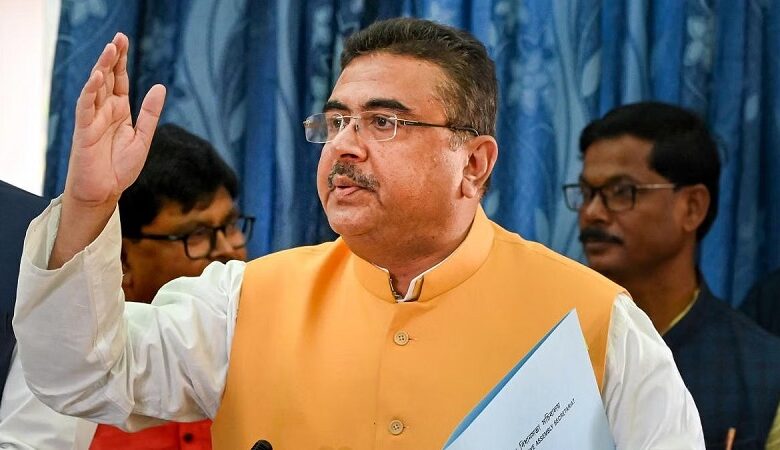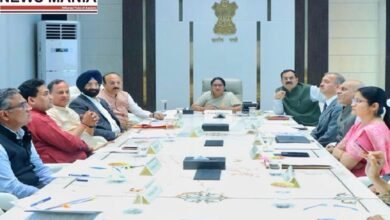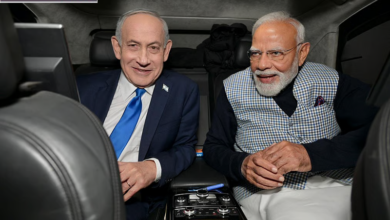Suvendu Adhikari Defends Role Amid BJP’s Poor Performance in West Bengal Elections

News Mania Desk/ Agnibeena Ghosh/15th June 2024
West Bengal Leader of the Opposition Suvendu Adhikari responded to criticism from fellow BJP leaders regarding the party’s disappointing performance in the state elections. Addressing the media on Wednesday evening, Adhikari, who switched from the Trinamool Congress to the BJP in 2020, clarified that his responsibility was to campaign for the party rather than involve himself in organizational matters. This statement came in response to accusations from senior BJP figures who blamed him for the party’s losses in the Lok Sabha polls.
The BJP’s parliamentary representation in West Bengal has shrunk significantly, dropping from 18 seats in 2019 to just 12 out of 42. Adhikari highlighted a double standard within the party, stating, “When things go right and results are in our party’s favor, they take credit. But when electoral performance is not up to the mark, then they blame me.” He emphasized his commitment to not airing the party’s internal issues in public.
The electoral setback has exacerbated factional tensions within the BJP’s state unit, with prominent leaders like Dilip Ghosh, Saumitra Khan, and Jagannath Sarkar pointing fingers at Adhikari. Former state BJP chief Dilip Ghosh insinuated that Adhikari played a role in candidate selection for South Bengal seats, which contributed to the losses against the Trinamool Congress (TMC). Ghosh also expressed dissatisfaction with being moved from Medinipur to Bardhaman-Durgapur, both constituencies the BJP lost to the TMC.
In a social media post dated June 6, Ghosh underscored the importance of veteran party workers, quoting Atal Bihari Vajpayee: “Keep one thing in mind: even one old karyakarta of the party should not be neglected. If necessary, let ten new karyakartas be separated. Because the old workers are the guarantee of our victory. Trusting new karyakartas too quickly is not advisable.”
Adhikari, addressing the criticism, reiterated his stance of non-interference in organizational decisions. He said, “I don’t have any intention of interfering in organizational decisions in the future. I exercise caution while speaking about the party outside. For that, many criticize my style of functioning. Sometimes, they say bad things about me and make social media posts.” This statement reflects his intent to maintain a cautious and non-controversial public profile despite internal party disputes.
The friction within the BJP in West Bengal highlights the challenges the party faces in maintaining unity and coherence in its strategy and leadership. Adhikari’s remarks point to a broader issue of internal blame-shifting and factionalism, which could undermine the party’s efforts to strengthen its foothold in a state dominated by the TMC.
Adhikari’s decision to stay out of organizational affairs moving forward might be seen as a strategic move to shield himself from further criticism while allowing the party’s core leadership to address the issues plaguing the state unit. However, this stance might also limit his influence within the party, potentially affecting his ability to shape future electoral strategies and decisions.
In summary, Suvendu Adhikari’s response to the BJP’s electoral performance in West Bengal underscores a significant internal rift within the party. As leaders blame each other for the losses, the focus shifts from external competition to internal consolidation. Adhikari’s commitment to avoiding organizational meddling may help ease tensions, but it also highlights the need for a unified and strategic approach to regain lost ground in the state. The coming months will be crucial for the BJP in West Bengal as it navigates these internal challenges and prepares for future electoral battles.






